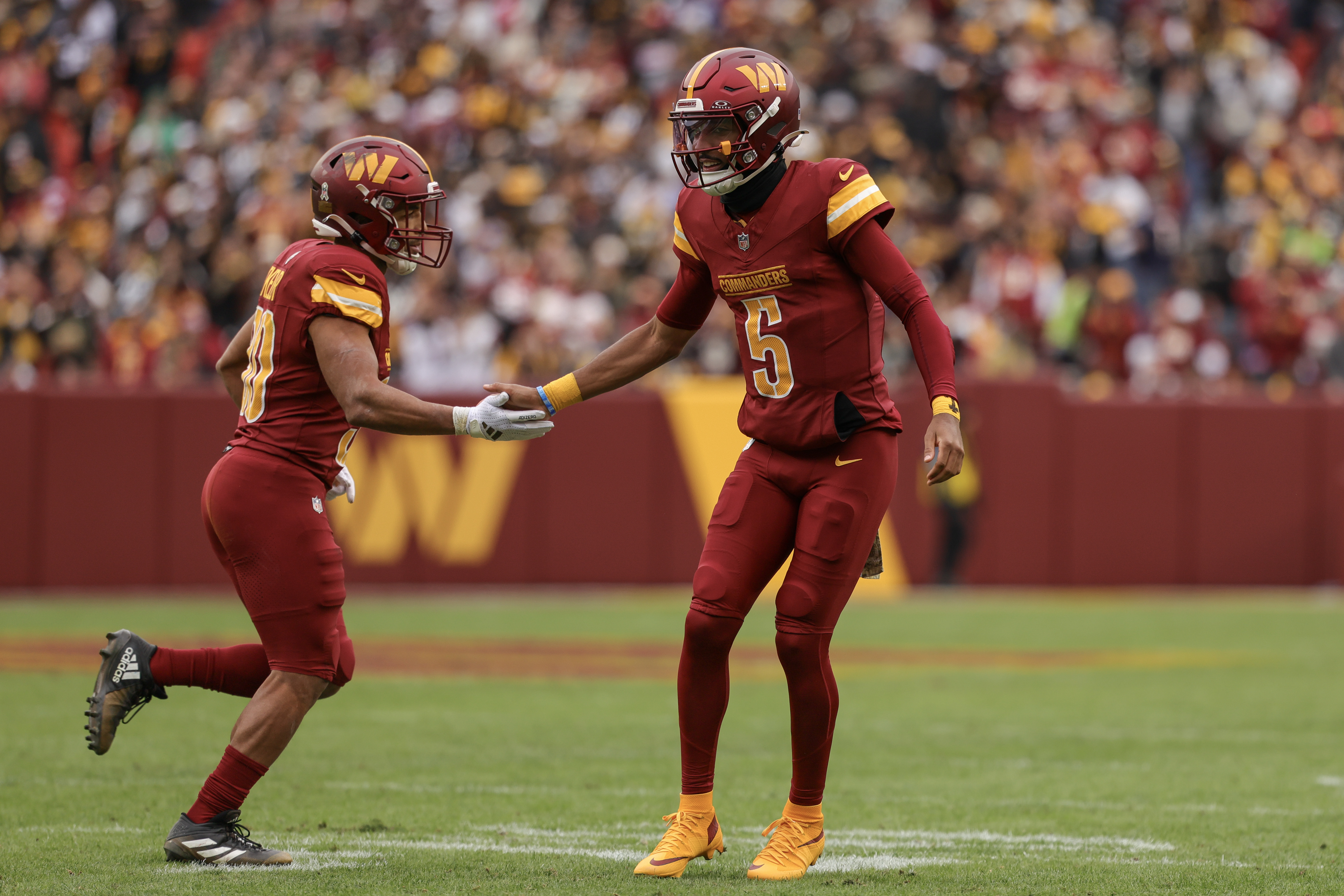Everyone loves an underdog story.
From the American colonists defeating the British to 16-seeded UMBC upsetting one-seeded Virginia in the NCAA Tournament, there is no shortage of famous underdogs throughout history.
The Super Bowl provides an opportunity for one team to prove everyone wrong. One side is always favored, and the other is forced to knock them off. That’s true yet again in this year’s Super Bowl LVII, where PointsBet has pegged the Philadelphia Eagles as 1.5-point favorites over the Kansas City Chiefs.
Here’s a look at some of the biggest upsets and spreads in Super Bowl history:
What is the biggest upset in Super Bowl history?
New York Jets (+18) over Baltimore Colts in Super Bowl III
Get Tri-state area news delivered to your inbox. Sign up for NBC New York's News Headlines newsletter.
Despite a Super Bowl record-tying 18-point spread, Jets quarterback Joe Namath guaranteed a victory before this game. It’s safe to say that worked out for Broadway Joe. The 13-1 Colts entered the game riding a 10-game winning streak and were fresh off a 34-0 victory in the NFL Championship Game. New York jumped out to a 16-0 lead before Baltimore added a late TD for a 16-7 final score.
Sports
New England Patriots (+14) over St. Louis Rams in Super Bowl XXXVI
Tom Brady’s first Super Bowl win was perhaps his most unlikely, as the Patriots entered as 14-point underdogs against the “Greatest Show on Turf” Rams. Kurt Warner’s squad was looking for a second title in three years, while Brady had just 16 starts to his name. New England had a 17-3 lead entering the fourth quarter before St. Louis tied the game with a minute and a half to play. Brady then marched down the field to set up a game-winning field goal as time expired, sealing a 20-17 win.
New York Giants (+12.5) over New England Patriots in Super Bowl XLII
Three years after Brady’s third Super Bowl, he entered as a 12.5-point favorite as the 18-0 Patriots faced the 13-6 Giants. New England’s historic offense never got going in this one, holding a narrow 7-3 lead entering the fourth quarter. The teams traded scores in the final frame, with Plaxico Burress’ touchdown catch putting New York ahead 17-14 with 35 seconds left. Brady and Co. couldn’t do anything with the short time remaining, and their perfect season was spoiled by Eli Manning.
Kansas City Chiefs (+12) over Minnesota Vikings in Super Bowl IV
The NFL team (Minnesota) was again heavily favored over the AFL team (Kansas City) in Super Bowl IV, the same way the Colts were predicted to easily beat the Jets the year prior. Yet again, the AFL proved its teams were just as good, if not better, than any NFL team. The Chiefs led 16-0 at halftime and cruised to an easy 23-7 victory, with Len Dawson taking home MVP for KC.
Denver Broncos (+11.5) over Green Bay Packers in Super Bowl XXXII
The defending champion Packers, led by Brett Favre, were 11.5-point favorites over John Elway’s Broncos. Elway was already 0-3 in the Super Bowl over his career, and he hadn’t reached the big game in eight seasons. In a back-and-forth affair, the game was tied at seven, then again at 17 and later at 24, before Denver pulled ahead for a 31-24 win. Terrell Davis had three touchdowns en route to winning Super Bowl MVP.
What is the biggest spread in Super Bowl history?
The biggest spread in a Super Bowl is 18 – which has happened twice in history.
The first 18-point spread was in the aforementioned Super Bowl III between the Jets and Colts, with New York winning the game 16-7. Twenty-six years later, there was another 18-point spread. In Super Bowl XXIX, the San Francisco 49ers were massive favorites over the San Diego Chargers – and they delivered. Steve Young’s 49ers won the game 49-26, covering the 18-point spread as they locked up their fifth Super Bowl title in 13 years.
How many favorites have lost the Super Bowl?
The favorite has lost the Super Bowl outright 19 times in its 56-year history. Two years ago was the most recent example of this, when the Chiefs were three-point favorites over the Buccaneers and lost the game 31-9. The favorite has failed to cover the spread in 27 of 56 games, with two of those 27 being a push.



